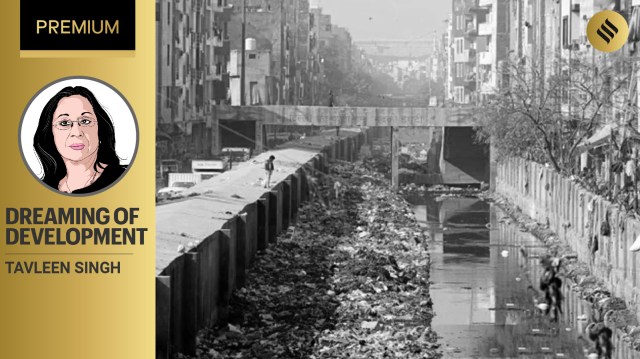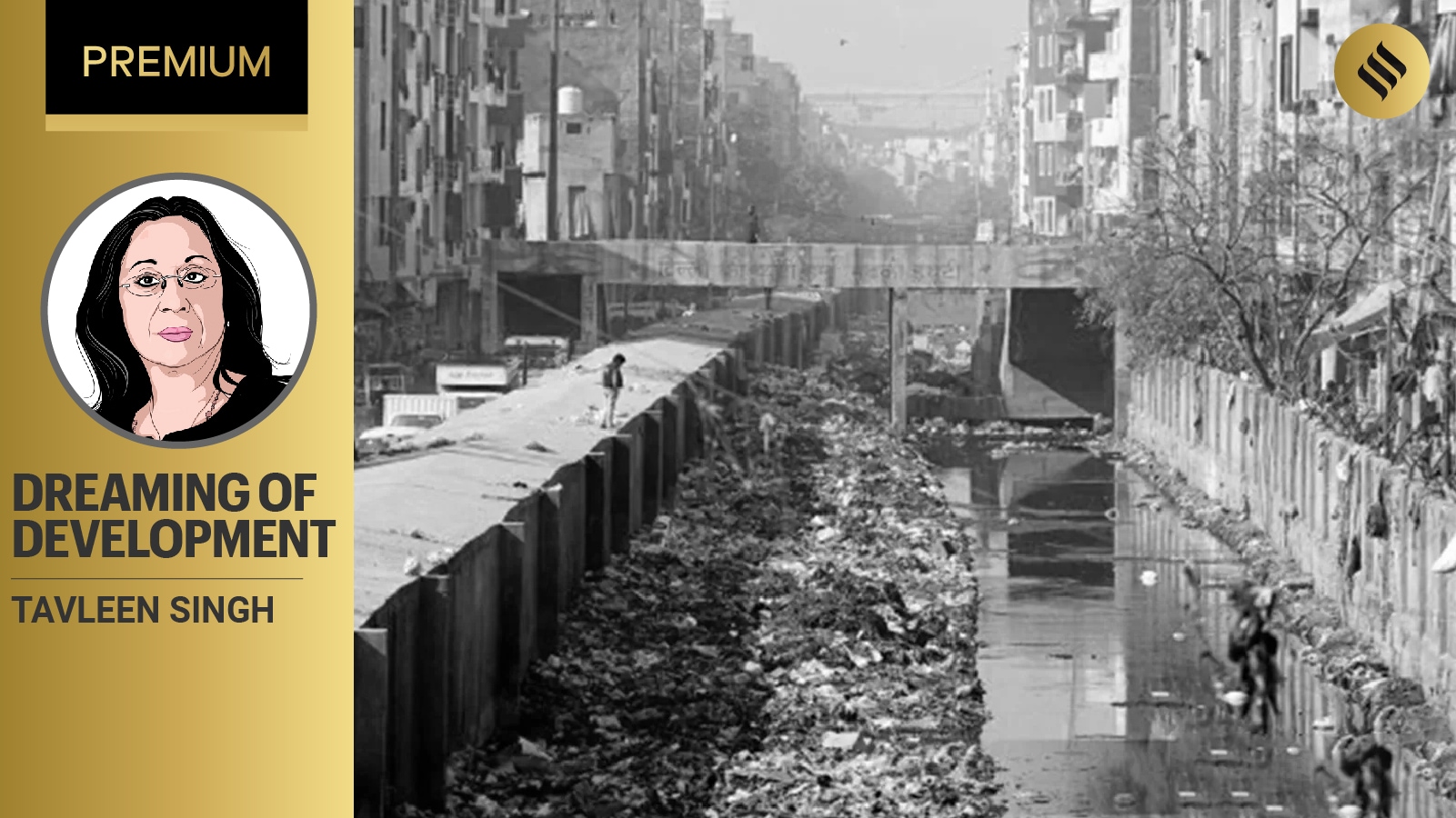

Feb 2, 2025 14:36 IST First published on: Feb 2, 2025 at 07:15 IST
The most seductive dream Narendra Modi has sold us is that India will be a fully developed country by 2047. On the day the Budget Session began last week, he banged on about ‘Viksit Bharat’ and it also became the theme song of the President’s speech. As I listened to both speeches, I found myself wondering if the Prime Minister knows how lucky he is that most Indians have never travelled to a developed country. At least not legally. Thousands pay traffickers small fortunes to get into the United States, but it is only a tiny group of Indians who get to travel to developed Western countries legally. As one of them, I consider it my duty as a conscientious columnist to describe just what a long road India needs to travel before that ‘Viksit Bharat’ dream becomes reality.
The Prime Minister, speaking outside Parliament last week, repeated his mantra of ‘reform, perform, transform’ but did not notice that he seemed to be acknowledging what his government has failed to do. It is true that roads, airports, ports and bridges have been built faster than ever before, but that is where the transformation of India has most definitely stalled. If dramatic change happened in any other area, it was during Modi’s first term, when Swachh Bharat was at its most effective. Rural sanitation has improved hugely, and this is no small achievement. But if we had been given Swachh Bharat 2.0, we may have come closer to solving our gigantic problem of efficient garbage disposal.
Story continues below this ad
There is not a single developed country I have been to where you see garbage mountains where once were landfills. These garbage mountains routinely catch fire and spew poisonous gases into the air we breathe in our cities. In rural India, garbage is quite simply dumped on the edge of the village and left to rot. In developed countries, these things do not happen. It does not happen in half-developed countries either. And I have travelled to countries much poorer than ours, in which disposal of waste is done seamlessly and people live in surroundings more salubrious than here.
If Indians, rich and poor, flee to developed countries, it is because they offer excellent public services that are made available even to their poorest citizens. In India, we have technically created a welfare state that offers free education and healthcare to those who cannot afford private schools and hospitals. But you do not need me to tell you that our government schools only teach minimal literacy, and our public hospitals remain places in which basic hygiene is so absent that instead of healing, the sick they often sicken the healthy.
When I first went to a developed country more than 50 years ago, I was amazed to see people drinking water straight out of the taps in their homes. This is something rich Indians cannot do yet. Modi deserves credit for trying to provide clean water in every home in the poorest of rural parts, but this is not something that is close to being achieved yet. It should shock us that in our ‘Amrit Kaal’ we are still unable to provide clean water to our citizens, but since this is rarely an election issue, our leaders do not bother with it.
Story continues below this ad
In this Delhi election, Arvind Kejriwal made water a big issue by irresponsibly charging the government of Haryana with poisoning the water of the Yamuna. Luckily nobody believed him, and he had to admit last week that the Yamuna’s water was now clean. May I point out that in developed countries you do not see rivers as polluted as our sacred Ganga and Yamuna have become.
most read
Personally, I long for India to become even a halfway developed country. One reason why I became a Modi Bhakt in 2013 was because he spoke a new economic language. I loved it when he told Parliament that he would keep the MNREGA (rural dole) programme going to remind the Congress party of its failure to create real rural jobs, not just dole. Then, he suddenly upped investment in MNREGA and rural jobs remain nowhere in sight. I loved it when he said from the ramparts of the Red Fort that he was going to dismantle the Planning Commission. But when I saw that the Niti Aayog was just the Planning Commission in a new guise, my Modi bhakti began to wane. It declined more sharply when demonetisation happened.
When I see real economic reforms replaced today by populist welfare schemes that do no more than fling money at people just before elections come along, I begin to truly despair. There is now competitive populism where these schemes are concerned, so every time there is an election, some new way of giving voters monthly pocket money is devised. These schemes may win elections, but they do very little to advance India towards that goal of becoming a fully developed country by 2047.
Forgive my gloomy mood, but something happened last week that reminded me that minimum governance has been replaced by maximum governance. The Uttarakhand government announced a common civil code that gives officials the right to interfere in our private lives. As reported in this newspaper, unmarried couples now need to declare before policemen, priests and officials not just about their current affair, but provide details of every past affair. This does not happen in developed countries.


